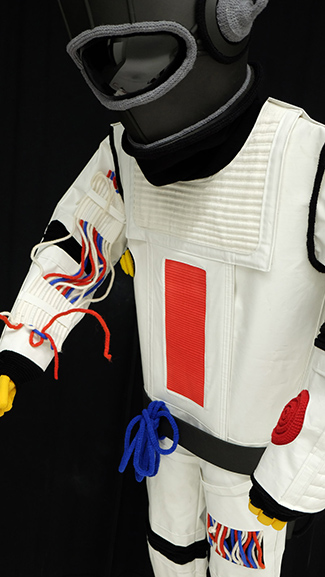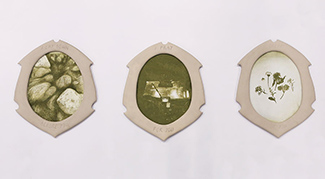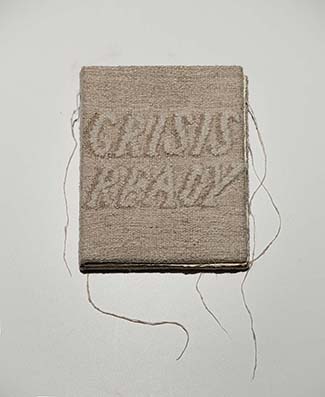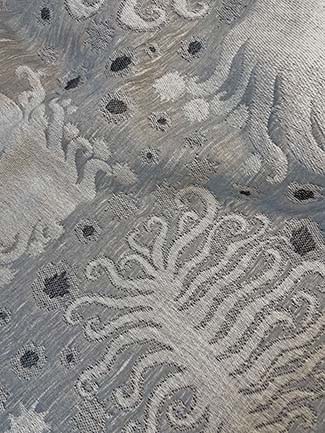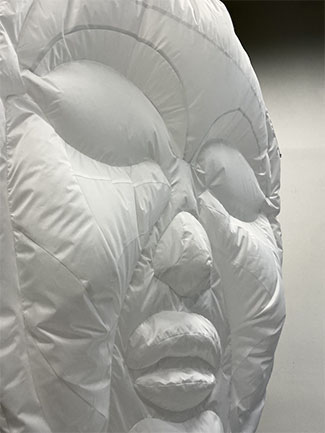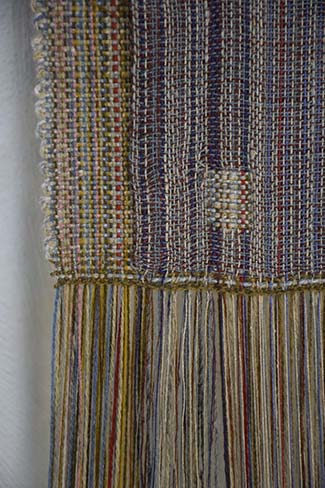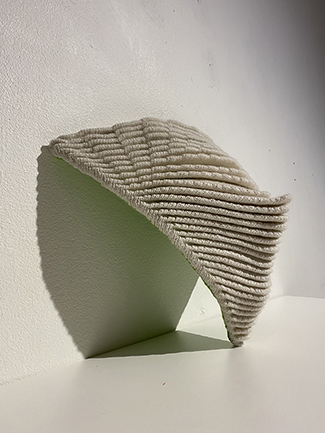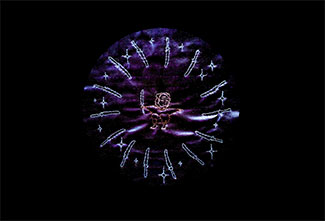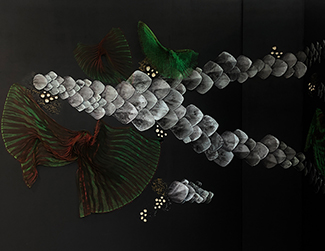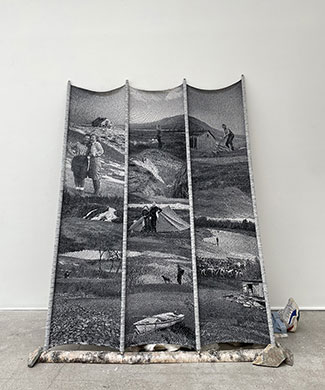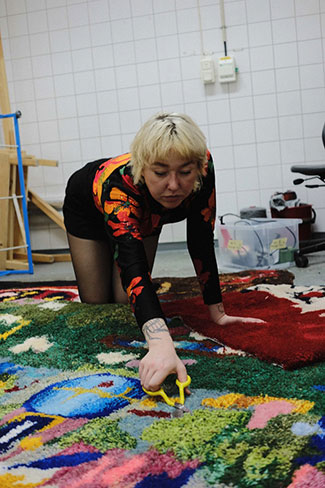Textiles
With a textile language, this year’s graduating students allow the personal to become universal. Through their selves, their materials and techniques, they explore questions about our world and what it means to be human today.
Where do we come from? How have things been done before us? Who has left a mark, and why? How do we relate to heritage? What can we trust? Where do we find solace? How can we exist sustainably? How can we convey powerful messages, even in whispers? The students seek these answers in love, beauty, care, poetry, curiosity and imagination. Through this, they let us meet ourselves and one another. This gives us the ability to see and understand beyond the obvious, beyond traditional borders. Dreams and truths are woven together, shifting between physical wakefulness and artisanal immateriality.
To work with contemporary textiles is to also engage in a dialogue with history – to listen and see what has already been done, to understand others’ imprints, and to thereby allow new connections and contexts to emerge. Through all the threads, patterns and materials, new memories, experiences and hopes are created. The perspective shifts depending on where we are standing; what we see changes in relation to our position, our time, our gaze. In a time in which the world feels unreliable, where truths are constantly distorted, we are looking for something to cling to – something physically tactile, constant, and yet changeable.
The textile and the craft are developed through the courage to stretch boundaries, redefine techniques and change our views on them. Our students explore both the roots of the tradition and the opportunities in the experimental. This year’s students create new expressions and let the textiles speak – about the past, the present and the future.
Elsa Chartin
Senior lecturer in crafts specialising in textiles, and programme co-ordinator for the Bachelor’s Programme in Textiles
